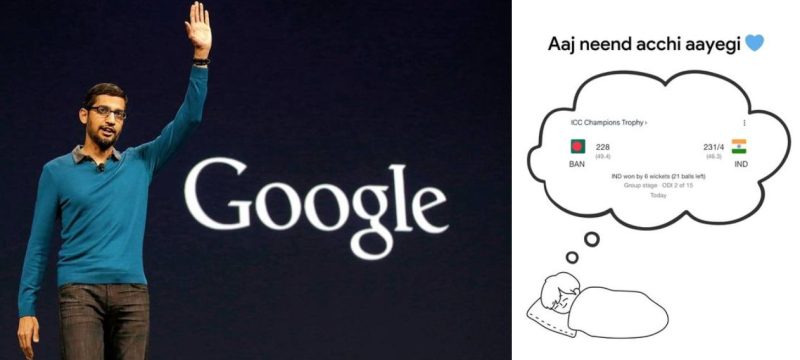Google, the world’s leading search engine, found itself in hot water after a Champions Trophy match result sparked controversy. A post on Google’s official page celebrating India’s victory over Bangladesh, with the caption “Aaj neend acchi aayegi 💙” (Tonight, sleep will be peaceful), raised concerns about the company’s neutrality.
A Question of Fairness
Under the leadership of Indian-born CEO Sundar Pichai, Google has frequently been accused of favoring Indian narratives. This latest incident fueled skepticism, with critics questioning whether the tech giant was acting as an unbiased platform or an Indian cheerleader. The celebratory meme on Google’s official page seemed more like a fan post rather than a neutral update from a global company.
Read more: Google Rings in the Year of the Snake with Lunar New Year Doodle
A Pattern of Bias?
This controversy is not limited to cricket. A recent Asia Times analysis revealed that Google search results disproportionately favor Indian media—often ultranationalist sources—when reporting on regional conflicts. For instance, news regarding the arrest of Bangladeshi Hindu leader Chinmoy Krishna Das surfaced mostly from Indian media, while credible Bangladeshi sources were buried in later pages.
Google’s algorithms, which power millions of searches every second, have long been criticized for alleged biases, particularly in politically sensitive issues. The dominance of Indian media, combined with advanced SEO tactics, has also contributed to an exaggerated portrayal of religious violence in Bangladesh, shaping global perceptions.
Blunder or Intentional?
The key question remains: If Google openly celebrates India’s wins, would it do the same for teams like Pakistan or Afghanistan? Critics argue that for a company that claims to be an impartial search engine, such favoritism is a PR disaster. If Google wants to maintain credibility on a global scale, it must ensure that its actions reflect true neutrality rather than nationalistic enthusiasm.





